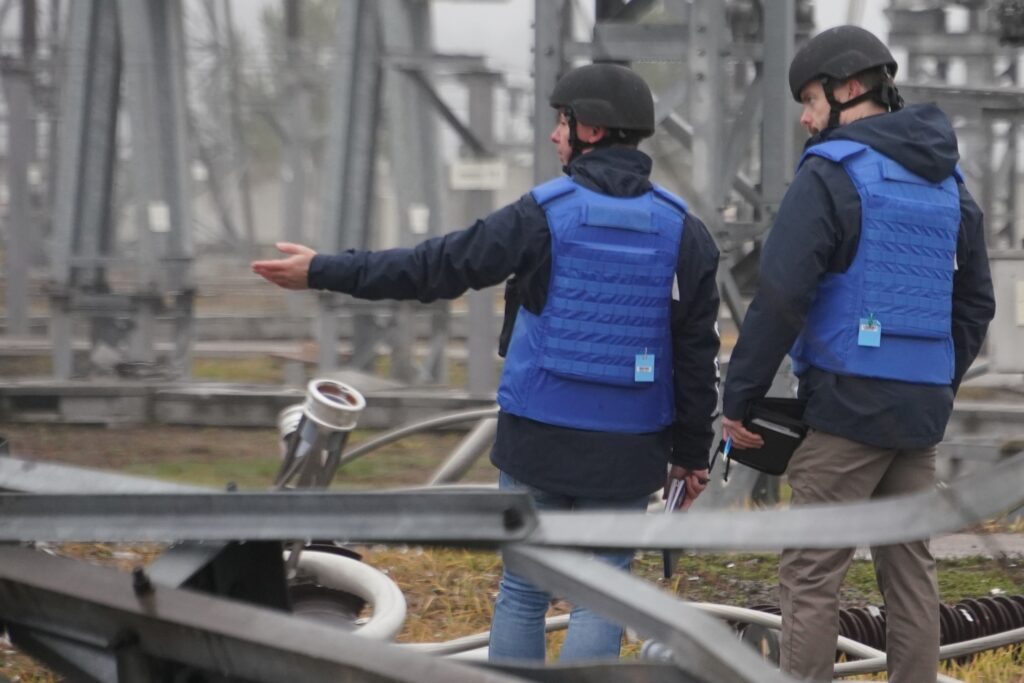Ships are stuck, the market is in a stupor: why Ukraine cannot export rapeseed and soybeans
8 September 18:39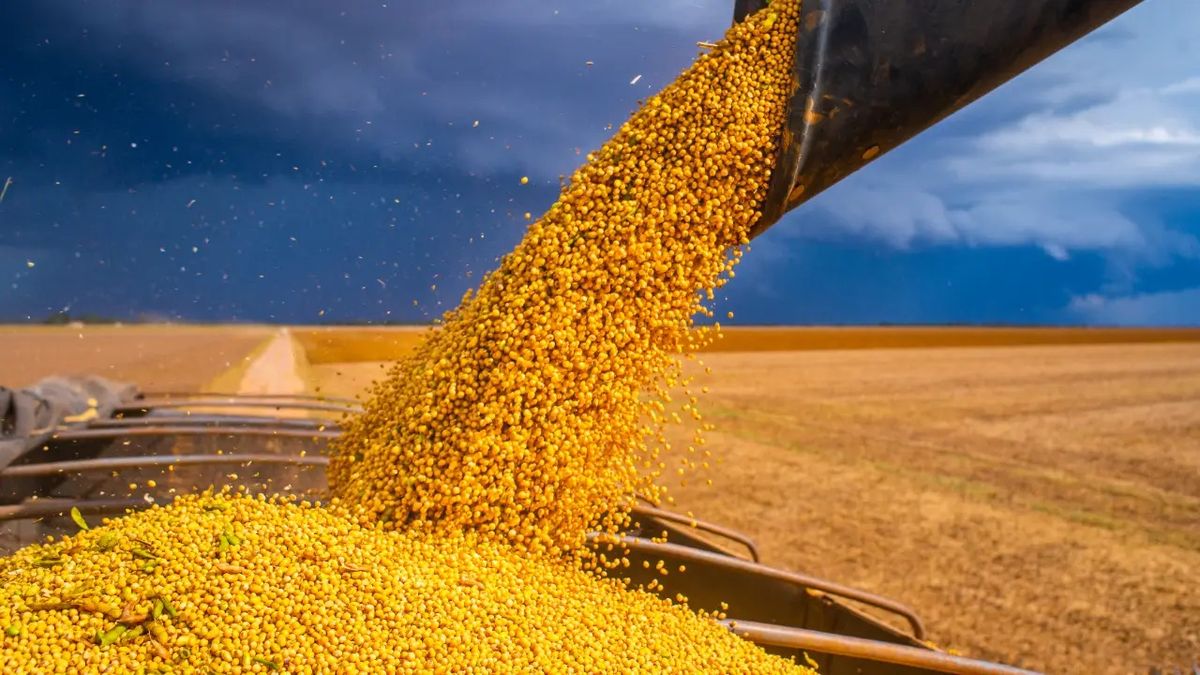 DOCUMENT
DOCUMENT
Exports of soybeans and rapeseed from ports have stopped after the Verkhovna Rada of Ukraine introduced a new duty. This is reported by "Komersant Ukrainian" with reference to the All-Ukrainian Agrarian Council (AAC).
The UAC notes that on September 4, 2025, a 10% export duty on soybeans and rapeseed came into force in Ukraine. The President signed the law after it was passed by the Verkhovna Rada in late July. However, within a few days, the shipment of oilseeds from ports de facto stopped.
The reason was the lack of documentary evidence of the products’ origin.
The law provides for exemption from duty for producers and cooperatives that directly grow oilseeds. However, in practice, it is impossible to clear such shipments: there are no instructions or documents proving the origin of the cargo at customs. This makes it difficult or even impossible to get exemptions from customs duties.
The All-Ukrainian Agrarian Council (AAC) has already appealed to Prime Minister Yulia Svyrydenko to urgently develop a regulation that will correct the gaps, as the situation of stopping exports could deal a significant blow to the agricultural sector.
The letter of the UAC to the Prime Minister Yulia Svyrydenko reads as follows
The agrarians asked Yulia Svyrydenko to intervene in the situation around the export of soybeans and rapeseed after the introduction of a new export duty.
The farmers emphasize that there is currently no mechanism for confirming the right to the privilege. This makes it impossible to file a customs declaration and effectively blocks the export of products that should be exempt from duty. In addition, traders who do not qualify for the exemption are forced to wait to load mixed consignments. In most cases, courts do not register such consignments without a clear separation of the status of origin.
The organization emphasizes that according to Article 335 of the Customs Code of Ukraine, the declarant must submit documentary evidence of the right to benefits, but the government has not yet approved the procedure and list of such documents. Therefore, market participants cannot exercise the right to exemption from duty.
The agrarians call on the government and the relevant ministries – Finance, Economy and Agrarian Policy – to urgently amend the regulatory framework to unblock exports and avoid financial losses for farmers.
The UAC reminded that according to the Law on the Prevention of Industrial Pollution, which came into force on September 4, the government must bring its bylaws in line with the new regulations within three months. The Cabinet of Ministers and relevant ministries are required to approve procedures that will allow agricultural producers to confirm their right to exemption from customs duties.
According to the current provisions of the Customs Code, the Ministry of Finance is responsible for developing the procedure for customs formalities. Such a procedure already exists – Order of the Ministry of Finance No. 657 dated 31.05.2012, but it does not cover the innovations regarding oilseeds introduced in 2025.
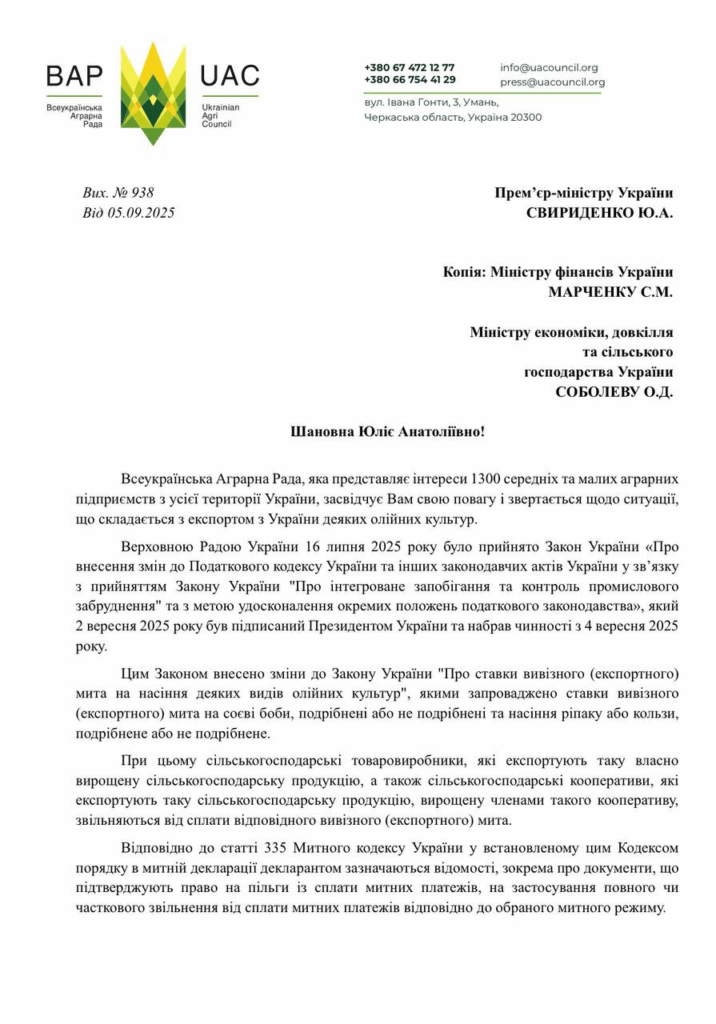
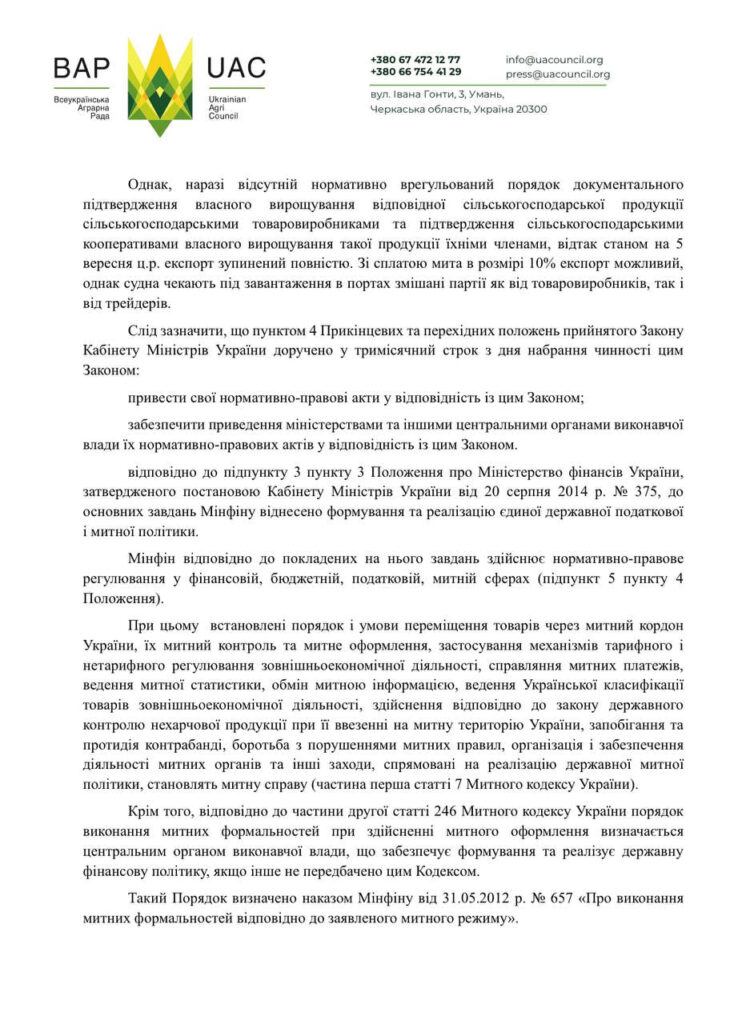
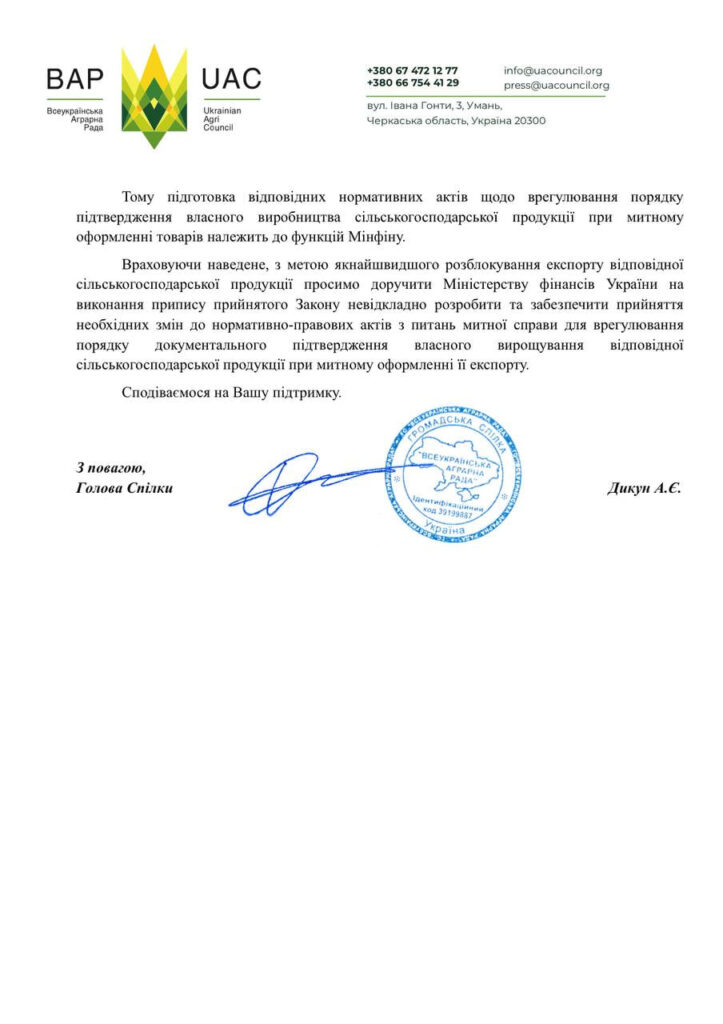
Thus, until the regulatory framework is amended, the export of soybeans and rapeseed will remain blocked, which threatens farmers with financial losses and logistics disruption. The UAC calls on the government to close the gap in the legislation as soon as possible.
Taking into account the above, in order to unblock the export of relevant agricultural products as soon as possible, we ask the Ministry of Finance of Ukraine to immediately develop and ensure the adoption of the necessary amendments to the regulatory legal acts on customs issues to regulate the procedure for documenting the own cultivation of relevant agricultural products during customs clearance of its export, – says the letter of the UAC to the head of the Government signed by the head of the organization Andrii Dy
What is the Law № 4536-IX about?
This is the Law of Ukraine “On Amendments to the Tax Code of Ukraine and Other Legislative Acts of Ukraine in connection with the adoption of the Law of Ukraine “On Integrated Prevention and Control of Industrial Pollution and in order to improve certain provisions of tax legislation” of July 16, 2025″, which amends the Law of Ukraine “On the rates of export duty on seeds of certain types of oilseeds”.
The law addresses environmental issues, but also has an economic dimension: it encourages the processing of raw materials in Ukraine instead of selling them abroad.
Minister of Agrarian Policy Vitaliy Koval noted that domestic processing capacities are only 65% operational and need to be fully utilized. In theory, the duty should help increase processing, create added value, foreign exchange earnings and jobs.
The proceeds from the export duty will be directed to the State Fund for Support of Agricultural Producers.
Read also: Take away and share: how the introduction of duties on soybeans and rapeseed will affect farmers
Reaction to the introduction of the duty and its implications for business
As of September 5, exports stopped completely. The ships are at ports because some of the shipments are mixed: products from both producers and traders, and it is almost impossible to separate them without clear procedures.
Ukraine is one of the key European suppliers of oilseeds, especially in the fall. Stopping exports will not only hit farmers, but will also affect the currency balance: agricultural exports are an important source of foreign exchange earnings.
Therefore, the UAC calls on the Cabinet of Ministers and the Ministry of Finance to immediately correct the regulatory framework and make it clear. Without this, the special regime remains formal.
Transition strategy: limit exports of raw materials or support processing?
In addition to the short-term blocking, the political motivation behind the law is to reduce the export of raw materials and invest in processing instead. As the head of the relevant ministry, Vitaliy Koval, put it, this is “counteracting the colonization of Ukraine as a supplier of raw materials.” In 2024, oilseeds became the most profitable crops (60% profitability of rapeseed, 40% of soybeans), but processing plants remain underutilized.
Back in June, the Agrarian Council proposed a ban on exports of 50% of the rapeseed harvest to force companies to operate at full capacity. The draft law No. 13134 was rejected. The second attempt to introduce the duty was repeated in July. However, the document again failed to specify the mechanisms necessary for farmers.
How can the “soybean amendments” threaten Ukraine?
Economic and agricultural analysts note that the imperfection of the law, which refers to the so-called “soybean amendments,” may entail a number of negative consequences for the domestic economy:
- social tension in the countryside – small and medium-sized farmers will suffer the most;
- financial losses of farmers – the sale of products will be delayed, which will reduce farmers’ income;
- trade contracts will be jeopardized – export contracts may be violated, damaging Ukraine’s reputation as a reliable supplier;
- loss of foreign exchange earnings – a drop in exports immediately affects the state budget.
Experts note: “The 10% duty was intended to be a strategic goal – to stimulate processing in Ukraine. But without enforceable regulations, it has led to a turbo-bureaucratic blockade. The biggest problem is the lack of clear documents confirming that the products were grown by the producer.
Дивіться нас у YouTube: важливі теми – без цензури
The government should urgently initiate regulations that
- formalize the legitimate status of the domestic producer;
- clearly define the procedure for customs clearance of agricultural products;
- involve all stakeholders in the process – producers, traders, processors.
Otherwise, the strategic plan to create a domestic processing industry could turn into a disaster for the country’s exports and currency stability.
Читайте нас у Telegram: головні новини коротко

